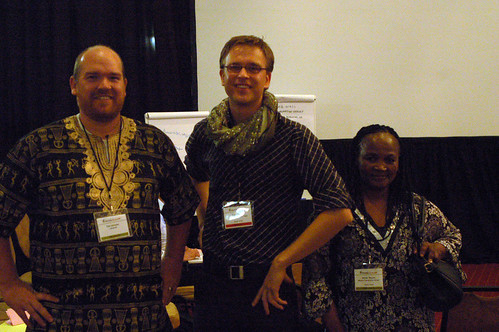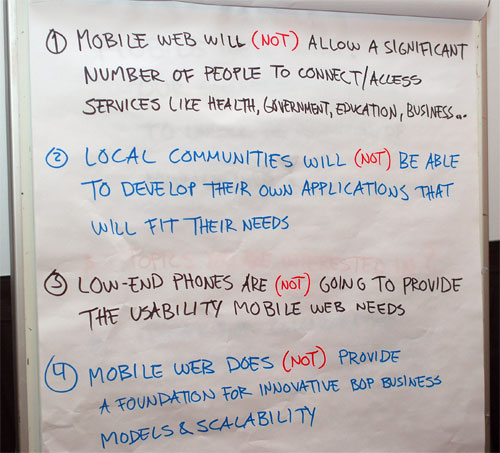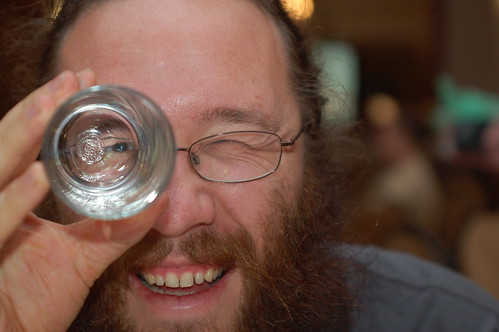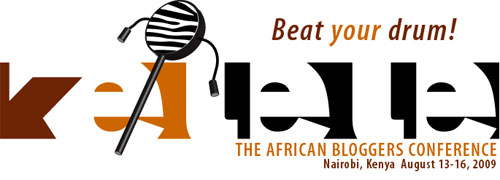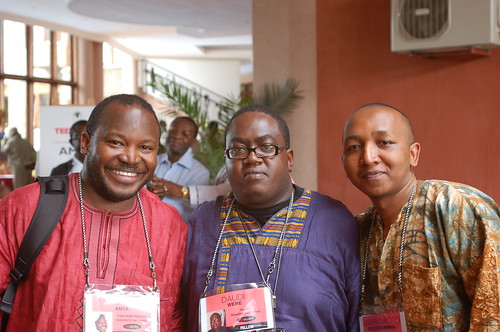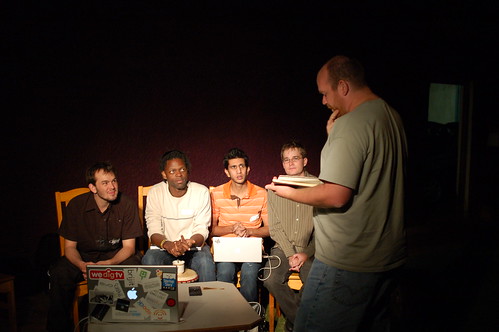This morning I had the honor of putting on a workshop at MobileActive ’08 with Robert Kirkpatrick, of InSTEDD, and Christopher Fabian, of UNICEF. Both of them are doing some amazing work in the field of disaster and crisis response, using all different types of technology, but specifically what people carry in their pockets all over the world: the mobile phone.
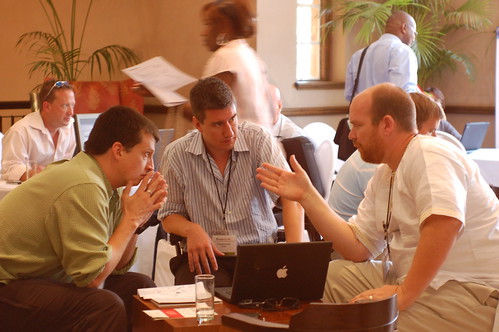
InSTEDD has a number of ongoing projects, generally thinking about ways to use technology to help organizations collaborate better in some of the harshest disaster environments in the world. You’ll find their tech guys everywhere, from Cambodia to hurricane Ike. Their Mesh4x and SMS GeoChat technology is incredibly important, and I foresee it being used in many applications in the future.
 UNICEF has two interesting skunkworks-like projects (among many more) that they talked about today. The Bee, which allows communication, connectivity and data access in field conditions where such technologies are often difficult or impossible to use (video of the old version of the Bee). Christopher also talked about RapidSMS, an SMS and voice data gathering tool that is currently being used in Northern Uganda.
UNICEF has two interesting skunkworks-like projects (among many more) that they talked about today. The Bee, which allows communication, connectivity and data access in field conditions where such technologies are often difficult or impossible to use (video of the old version of the Bee). Christopher also talked about RapidSMS, an SMS and voice data gathering tool that is currently being used in Northern Uganda.
Takeaways: Free, Open Source, Customizable
It was interesting to hear each of us talk about our projects and how we each have an immense amount of respect for what each of the other groups is doing. Ushahidi’s focus is on gathering distributed data from civilians for visualization, InSTEDD is focused on collaboration, and UNICEF is trying to figure out how that works within groups and communities.
One consistent message is this: every crisis situation differs, so we need to build tools that are open and free for anyone to access. It’s a little like all of us creating different Lego pieces that go into the Lego box for everyone else to use.
Ushahidi needs to figure out how to incorporate both RapidSMS and SMS GeoChat. UNICEF’s Bee needs to get Mesh4x embedded in their device – which has both open source hardware and software. There are other tools, like Sahana, that we need to learn how to incorporate into our systems as well – or at the least make possible to interface between when people need that specific mix of tools in their particular situation.
Lastly, but probably most importantly, we all see that developing within the context of the areas of the world where these disaster or crisis situations are happening is vital. UNICEF has developers in a couple different African countries. InSTEDD’s devs are training local devs in all of the countries that they go to. Ushahidi has 85% of our dev team in Africa. It’s a trend, and a good one – making sure that the people build the tools using the devices and limitations in which they will be used.
Look for big things stemming from this meet up soon.

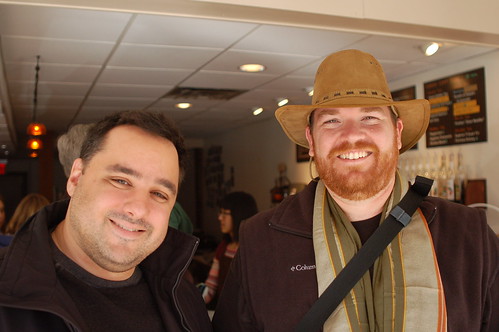

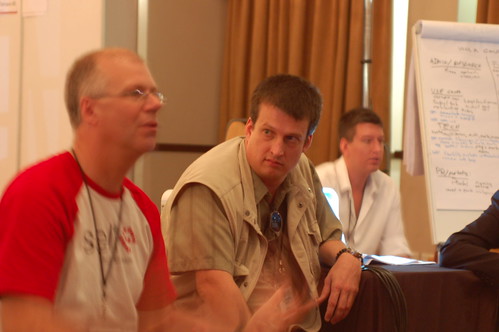

 UNICEF has two interesting skunkworks-like projects (among many more) that they talked about today.
UNICEF has two interesting skunkworks-like projects (among many more) that they talked about today. 